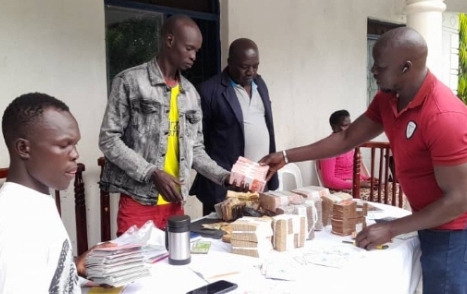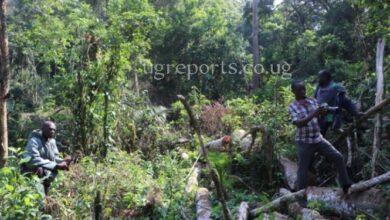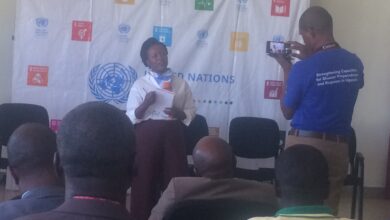Katakwi residents call for banking services in the district
Safety concerns arise due to the need to physically transport large sums of money.

Katakwi: Katakwi district in eastern Uganda is grappling with challenges related to banking services. The escalating number of village savings and loan association groups in the district highlights the need for accessible financial services.
Katakwi district, with its three counties, 20 sub-counties, and 109 parishes, faces difficulties in accessing banking services.
Residents often have to travel to nearby districts like Soroti and Moroto or even cross Lake Bisina to Kumi district to access banking facilities.
The lack of local banking infrastructure affects both individual savers and community-based savings groups.
The Ocorimongin Townboard savings group, which annually shares profits of over 200 million shillings, spends 110,000 shillings weekly on transporting money to the bank in Soroti.
This transportation cost impacts the group’s overall savings and interests. Safety concerns arise due to the need to physically transport large sums of money.
Katakwi’s population primarily consists of individuals involved in the informal sector.
Village savings and loan associations play a crucial role in providing financial services to these communities. However, the lack of formal banking services hinders economic growth and financial inclusion.
Local pastor David Choda emphasizes the importance of saving for future generations. ‘’Despite challenges, encouraging low-earners and informal workers to save can lead to financial stability and growth, and providing accessible banking services within Katakwi would support this goal.’’
He notes that collaborative efforts between local authorities, financial institutions, and community leaders can help address the banking services gap.
Exploring mobile banking solutions, agent banking, and community-based financial literacy programs could improve access.
Pr. Choda’s call for Ugandans to save for future generations resonates with the need for financial stability and responsible management.
Minister Haruna Kasolo advises the locals to use reliable banks aligned with the need for efficient disbursement of funds (such as PDM cash) to beneficiaries.
Richard Ejoku observes that digital bookkeeping being less confusing and time-consuming is significant, and embracing technology can enhance financial management within the group.
The group’s loan disbursement of 258,600,000 shillings with a 5% interest rate demonstrates their commitment to financial empowerment.
Do you have an advertisement or an article you want to publish? Mail us at theugreports@gmail.com or WhatsApp +256394700683.






